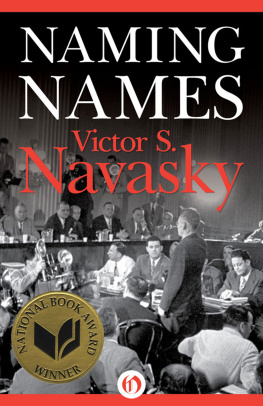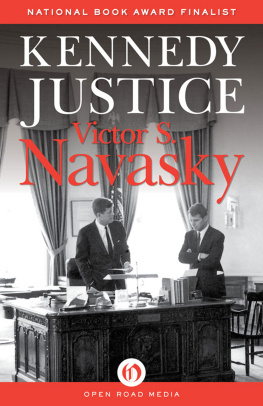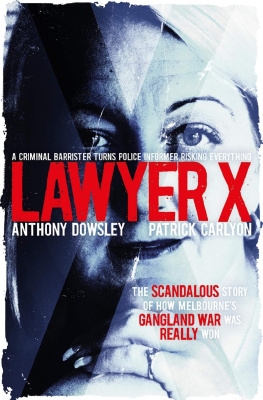
Naming Names
Victor S. Navasky
For Annie, Bruno, Miri, and Jenny
Foreword
AT 10:35 A.M. ON March 21, 1951, in room 226 of the Old House Office Building on Capitol Hill, Chairman John S. Wood of Georgia called to order the House Committee on Un-American Activities (HUAC). The subject: subversive activities in the entertainment industry. Congressman Woods first witness was the actor Larry Parks, whose portrayal of the title role in The Jolson Story in 1946 had earned him overnight fame and, perhaps, the HUAC subpoena that accounted for his presence.
That same morning, at the U.S. Federal Court in Foley Square in Manhattan, the government concluded its case against Julius and Ethel Rosenberg and Morton Sobell, charged with conspiring to commit wartime espionage for Americas former ally, the Soviet Union. The most damaging witness against them had been Ethels brother, David Greenglass. The other major espionage case of the late 1940s also reached its denouement as Alger Hiss, the forty-six-year-old former State Department official who had been convicted of perjury for denying that he had passed official papers to the Russians, prepared to enter prison for five years. His accuser, though not a family member, was nevertheless a man who had claimed to be his friend. Indeed, Whittaker Chambers was to go on to write Witness, one of the truly influential books of that era, in which he attempted to vindicate the informer as patriot, prophet, and moral hero.
The congressional hearings into Hollywood had begun in 1947, when ten objecting witnesses (who came to be called the Unfriendly Ten or the Hollywood Ten) had been cited for contempt of Congress when they refused to give a yes or no answer to the question that marked that era: Are you now or have you ever been a member of the Communist Party? The hearings, suspended until the convicted Ten had exhausted their appeals and were imprisoned for terms of up to a year, were resuming with Parks as the lead-off witness.
By the spring of 1951, all parts of the federal government may have been united in a single battle against suspected subversives, but of course there are vital differences among the three branches. Whatever one thinks of the Hiss and Rosenberg trials, they followed formal indictments and took place in courts that provided at least some procedural protections. Government witnesses, including Greenglass and Chambers, were subject to cross-examination; moreover, if they were telling the truth, they were providing essential evidence unavailable elsewhere. Congress, however, cannot charge people with crimes; the Constitution in the Bill of Attainder clause specifically prohibits legislative incursion into this area. Yet witnesses before congressional committees have far fewer rights than defendants in criminal trials. And, as HUAC itself eventually revealed, congressional committees may already know the answers to the questions they are asking. Larry Parks was being called upon not to provide information that would lead to an acquittal or conviction, but rather to play a symbolic role in a surrealistic morality play.
Parks freely admitted to HUAC that he had joined the Communist Party in 1941 when he was twenty-five years old because it was the most liberal of the political parties and had left it in 1945 because of lack of interest. Unlike the Hollywood Ten, he was willing to detail his own political autobiography, but he had compunctions about naming those who had served with him. I would prefer, if you would allow me, not to mention other peoples names. This is not the American way, added Parks. To force a man to do this is not American justice.
Chairman Wood said he was not going to press the point, unless other members of the Committee wish to. And Congressman Francis E. Walter of Pennsylvania (who in 1954 assumed the chair himself) seemed to agree. How can it be material to the purpose of this inquiry to have the names of people when we already know them? he asked. Why is it so essential that we know the names of all the people when we have a witness who may make a contribution to what were trying to learn? Isnt it far more important to learn the extent of the activity, and what the purpose of the organization actually was, than to get a long list of names of bleeding hearts and fools, suckers, hard-boiled Communist politicians? As long as we have a witness willing and anxious to cooperate in carrying out what I conceive to be our purpose, I think the rest is all immaterial.
In the afternoon session Parks pleaded with the Committee: Dont present me with the choice of either being in contempt of this Committee and going to jail or forcing me to really crawl through the mud to be an informer. For what purpose?
It should be noted, however, that the issue of credibility did not go to the evidence being presented, for neither Jackson nor anyone else seriously disputed Walters concession that HUAC already had the evidence it was allegedly seeking. Rather, the Committee was in essence serving as a kind of national parole board, whose job was to determine whether the criminals had truly repented of their evil ways. Only by a witnesss naming names and giving details, it was said, could the Committee be certain that his break with the past was genuine. The demand for names was not a quest for evidence; it was a test of character. The naming of names had shifted from a means to an end.
From that day forward those called to testify were advised by their attorneys that they had three choices: to invoke the First Amendment, with its guarantee of free speech and association, and risk going to prison for contempt of Congress like the Hollywood Ten; to invoke the Fifth Amendment, with its privilege against self-incrimination, and lose their jobs (Howard Da Silva and Gale Sondergaard, who followed Parks onto the stand that day, refused to answer the Committee, citing the Fifth Amendment, and were quickly excused and quickly blacklisted); or to cooperate with the Committee and name names and hope to continue working (as Sterling Hayden did, the first witness after Larry Parks to name names). The ground rules for the decade were set.
Playing the informer runs against the American grain, as Parks rightly indicated. As a people we start out with presumptions against certain activities, and among these proscribed undertakings are lying, theft, murder, incest, treason, and informing. And informing ranks high on this dark list. In the abstract, many Americans would probably subscribe to E. M. Forsters famous sentiment: If I had to choose between betraying my country and betraying my friend, I hope I should have the guts to betray my country.
Going into the 1950s, the image of the informer most Americans carried had been set, in no small part, by Hollywood. Thus in prison pictures, the only character more predictable than the sadistic guard or Doc, the alcoholic medic, was the stoolie who gets his come-uppance. In Brute Force (1947), directed by Jules Dassin, who was later blacklisted, an inmate sums up the prevailing perspective when he says to Hume Cronyn, the sadistic prison guard who wants him to stool, Captain, Im a cheap thief. But Im not an informer.
The informer was the wretched, hulking Gypo Nolan as portrayed by Victor McLaglen in John Fords 1935 adaptation of Liam OFlahertys novel The Informer, the story of how Gypo, for thirty pieces of silver, betrays his best friend, a revolutionary leader who comes out of hiding to see his mother before he dies of consumption. Who could forget the British officers look of contempt as he pushes Gypos ill-gotten gains across the table with his swagger stick? To protect himself, Gypo accuses another man, the tailor Rat Mulligan, then tries to forget his sin in a night of revelry, but ultimately breaks down before the rebel forces court of inquiry. One traitor can destroy an army, we are told, and Gypo has endangered the lives of hundreds of other men who are fighting for what they believe in. An informer is an informer. Hes got to be wiped out like the first sign of a plague as soon as hes spotted. Hes a common enemy. Hes got to be got, Gypo. The generation of moviegoers and moviemakers who came of age in the late 1940s still carry with them the memory of the brilliant scene where, having collected his money, Gypo goes to visit the randy Katie (the dialogue is lifted directly from the novel):
Next page









